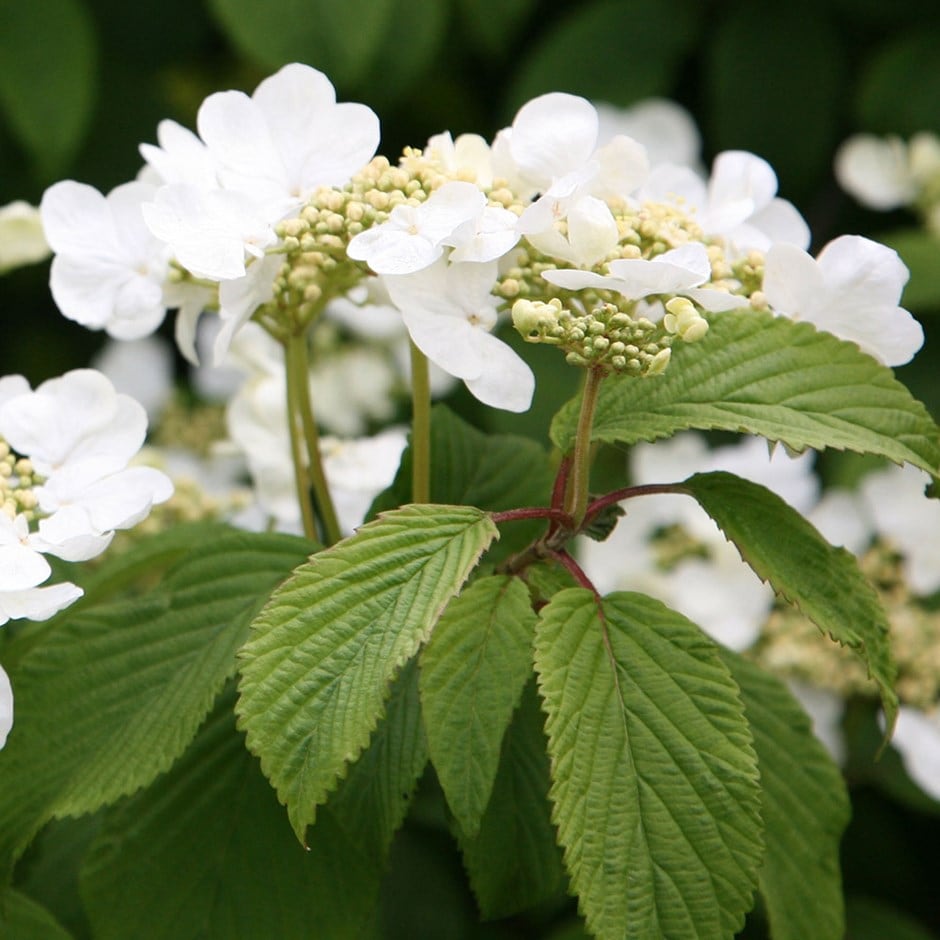
Buy Japanese snowball bush Viburnum plicatum f. tomentosum Mariesii £59.49 Delivery by Crocus
0.8 cups. every 9 days. Japanese Snowball needs 0.8 cups of water every 9 days when it doesn't get direct sunlight and is potted in a 5.0" pot. Use our water calculator to personalize watering recommendations to your environment or download Greg for more advanced recommendations for all of your plants. Water 0.8 cups every.

Japanese snowball (Viburnum plicatum) Stock Image B842/0981 Science Photo Library
10+ Flowering Viburnum shrubs & bushes for sale online. Expert advice & award winning service. Carefully packaged & delivered nationwide.
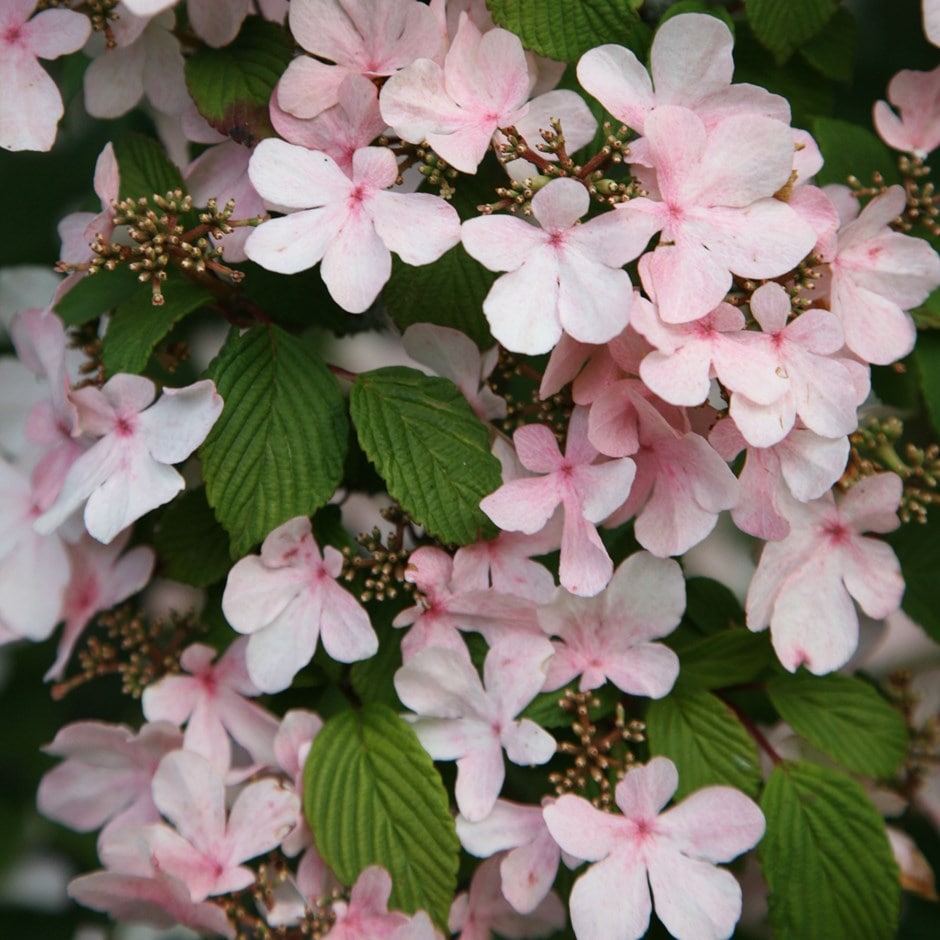
Buy Japanese snowball bush Viburnum plicatum f. tomentosum Pink Beauty £34.99 Delivery by Crocus
Viburnum plicatum 'Mariesii' has received the RHS Award of Garden Merit and Alan Titchmarsh described it as the one shrub he would never give up. Viburnum plicatum f. tomentosum 'Mariesii', Japanese snowball 'Mariesii' Common name: Japanese snowball 'Mariesii' Awards: RHS Award of Garden Merit; Height and spread in 20 years: 3 x 3 metres;
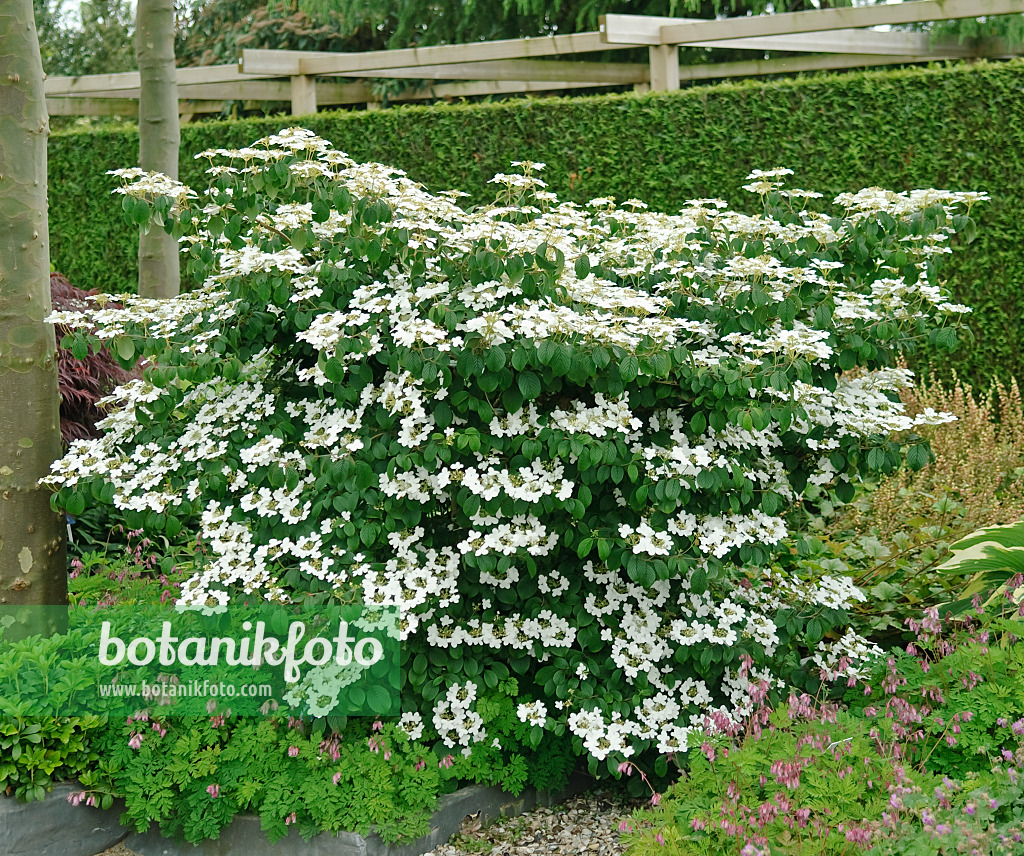
Image Japanese snowball (Viburnum plicatum 'Mariesii') 502451 Images of Plants and Gardens
Buy online from £27.99 Plant nurseries 48 suppliers Size Ultimate height 2.5-4 metres Time to ultimate height 10-20 years Ultimate spread 2.5-4 metres Growing conditions Loam Chalk Sand Clay Moisture Moist but well-drained, Well-drained pH

Viburnum Plicatum, Japanese Snowball Tree. Stock Photo Image of foliage, bright 249684500
Viburnum plicatum is a species of flowering plant in the family Adoxaceae (formerly Caprifoliaceae ), native to mainland China, Korea, Japan, and Taiwan. [1] The Latin specific epithet plicatum means "pleated", referring to the texture of the leaves. [2] Description "Snowball" flowers of a sterile cultivar
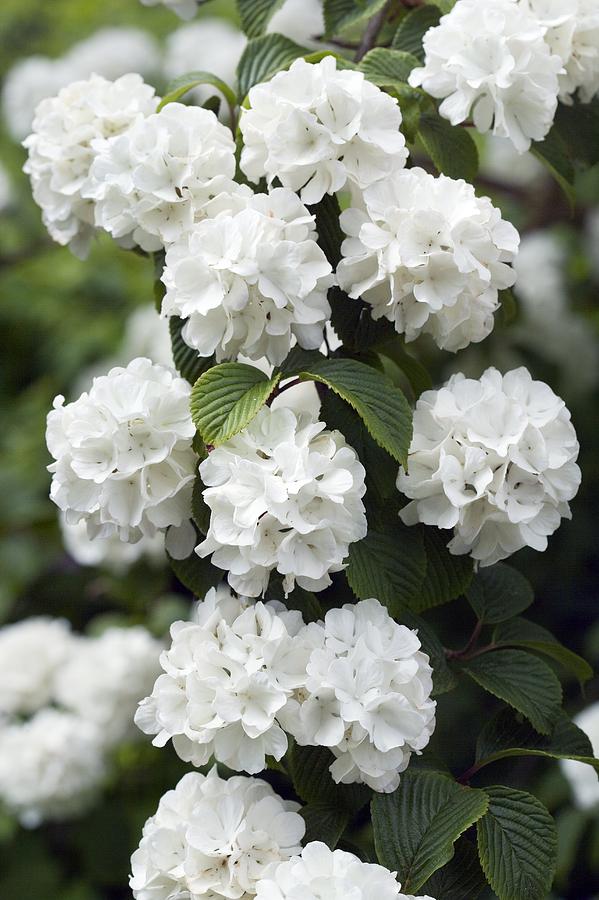
Japanese Snowball (viburnum Plicatum) Photograph by Jon Stokes Pixels
An amazing blooming, beautiful leafage, ornamental fruits… Birds and insects love Japanese snowball.And we do, too! On top of its amazing flowering, the silhouette of viburnum plicatum is also appealing in itself. The architecture that the staged branches present is extremely rare in the plant world and make this a very distinctive plant.
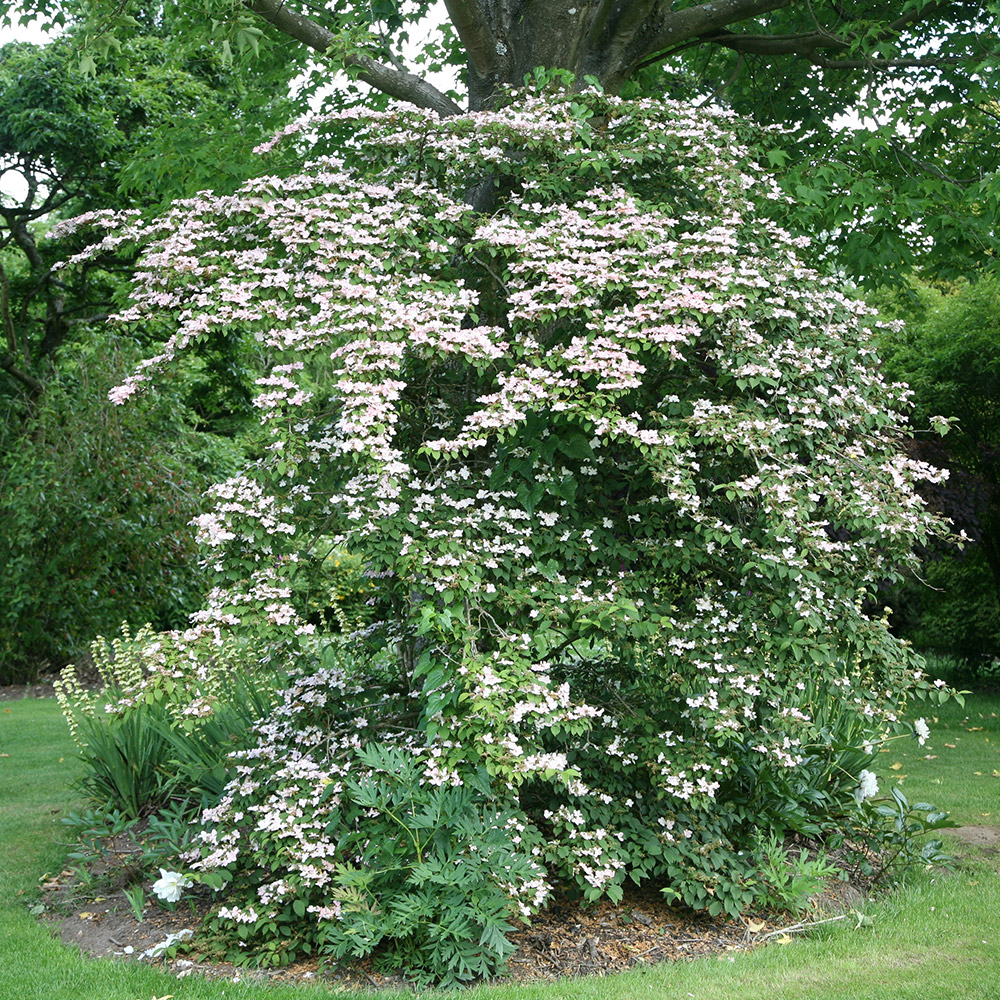
Buy Japanese snowball bush Viburnum plicatum f. 'tomentosum 'Pink Beauty'' Delivery by Waitrose
This plant requires cool soil to grow well. Cover the soil near the stem with organic mulch every year. Japanese Snowball Watering The plant must be watered every 7 - 10 days in hot weather.

FileSnowball Viburnum Viburnum plicatum Flowers 2.jpg
Viburnum plicatum, Japanese snowball Viburnum plicatum is a family of shrubs with stunning abundant blooming. Some are doublefile while others bloom like snowballs. Viburnum plicatum facts Name - Viburnum plicatum Family - Adoxaceae Type - shrub Height - 10 feet (3 meters) Exposure - full sun or part sun Soil - ordinary, well drained
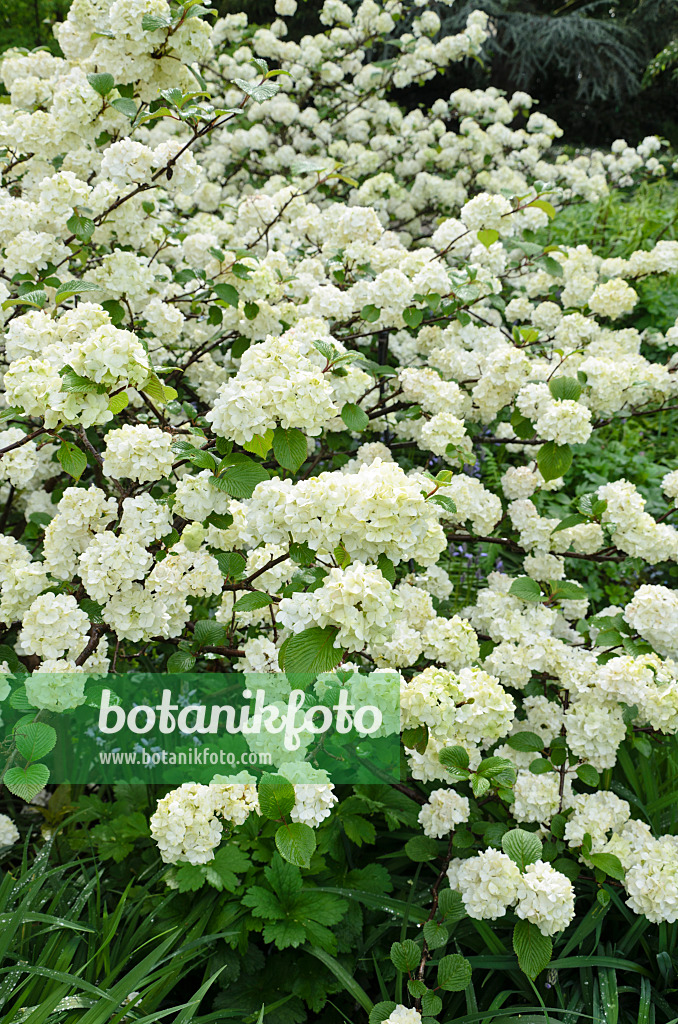
Image Japanese snowball (Viburnum plicatum 'Rotundifolium') 508074 Images of Plants and
'Nanum Semperflorens' is a compact, dense, slow-growing shrub, to 2m tall, with ovate, deeply-veined leaves that turn attractive autumnal shades. Flat clusters of white flowers are borne over a long period from late spring to early autumn and are sometimes followed by red fruits that eventually turn black Synonyms Viburnum plicatum 'Nanum'
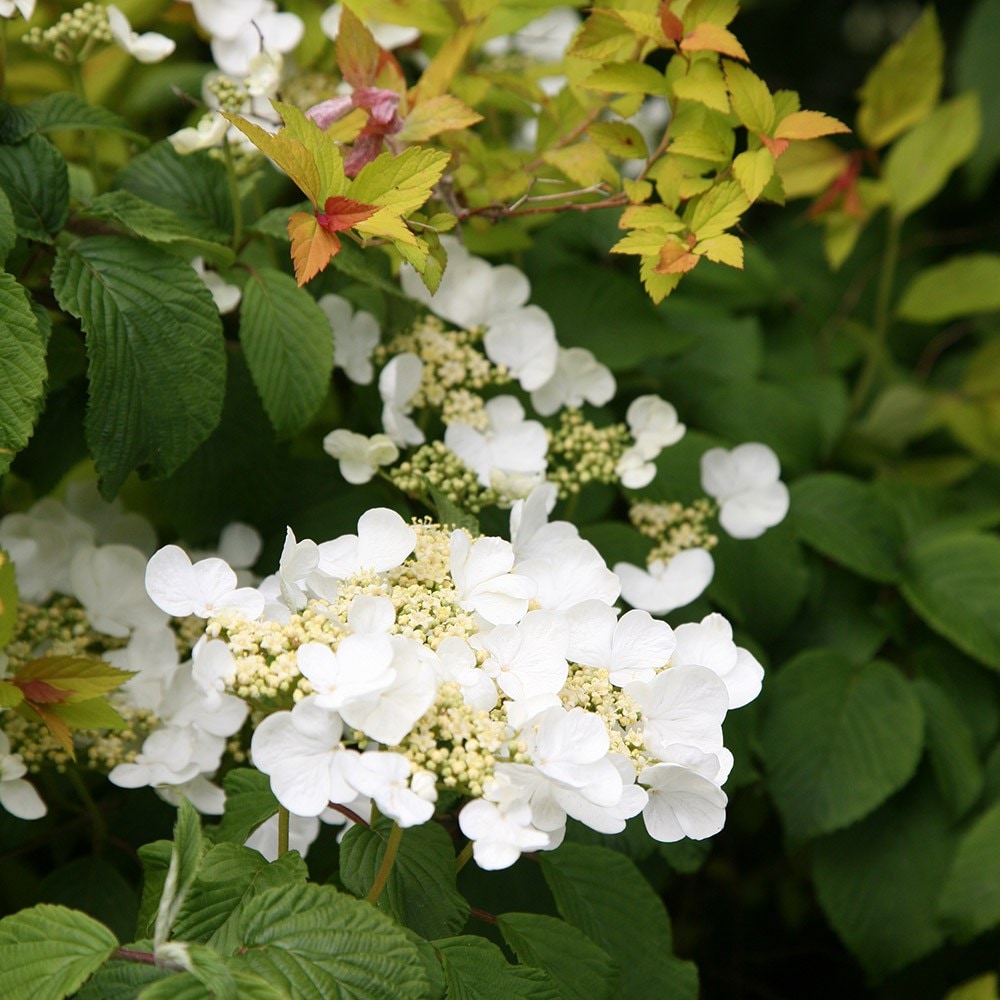
Buy Japanese snowball bush Viburnum plicatum f. tomentosum Mariesii £13.49 Delivery by Crocus
Viburnum plicatum f. tomentosum 'Summer Snowflake' Japanese snowball 'Summer Snowflake' A bushy, deciduous shrub with heart-shaped, deeply-veined dark green leaves that turn red-purple in autumn. Flattened heads of lacecap-like flowers extend along the branches and above the foliage.
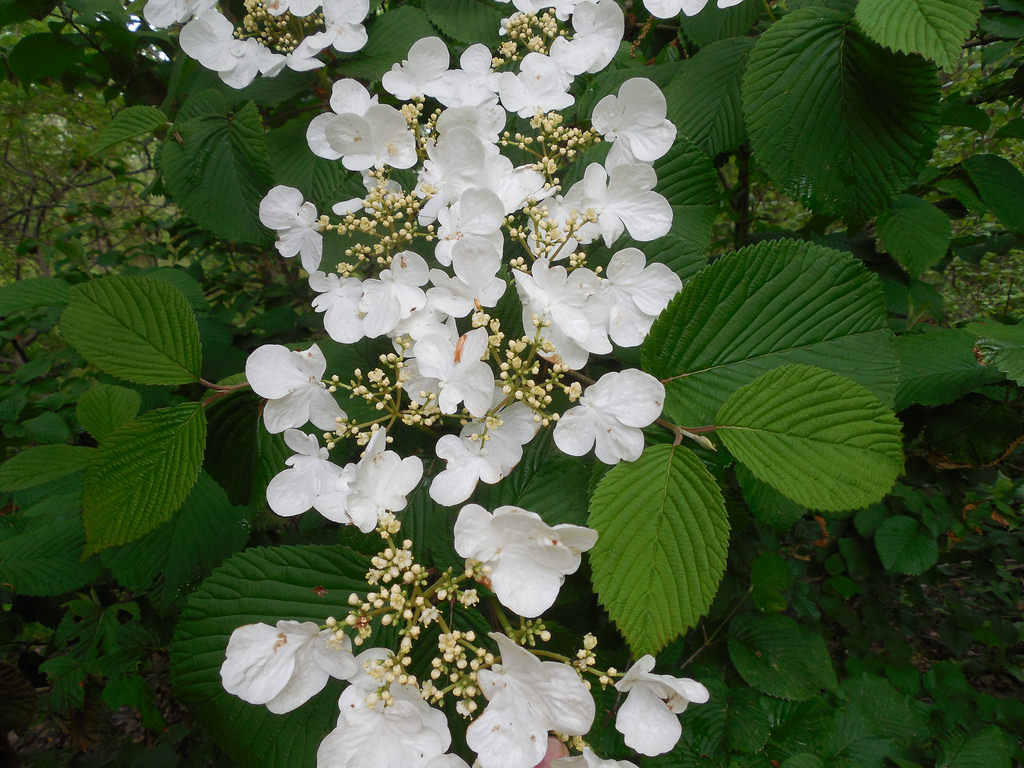
Maryland Biodiversity Project Japanese Snowball (Viburnum plicatum)
Viburnum plicatum is a shrub native to eastern Asia that is planted for ornament in North America. Some of the cultivars planted in New England have all of the flowers converted to enlarged, sterile flowers in a more or less spherical cluster, giving rise to its common name Japanese snowball. Habitat
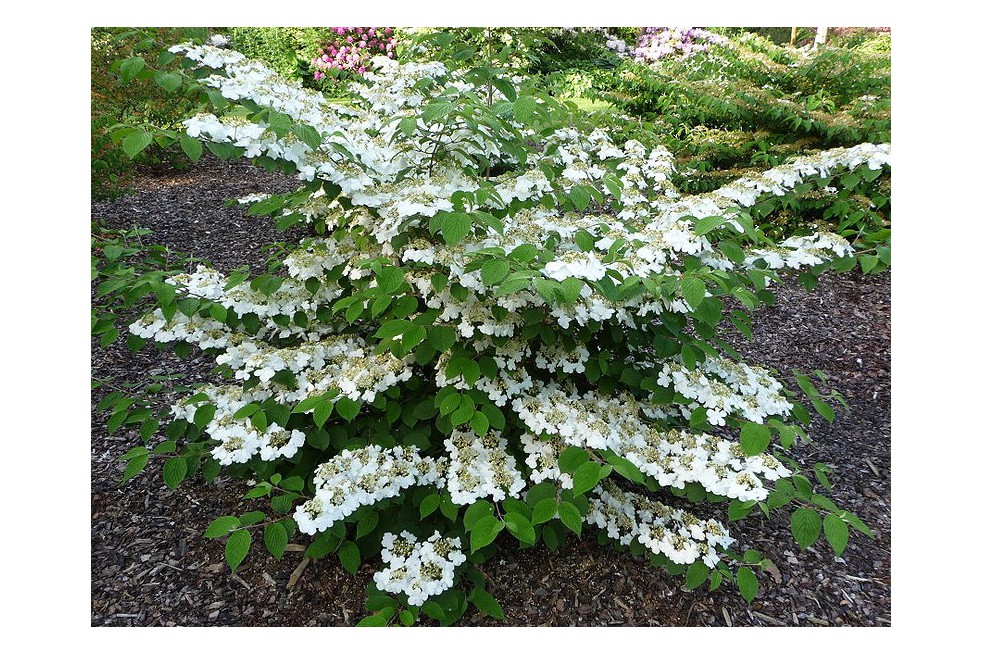
Japanese snowball Tomentosum Viburnum Plicatum Tomentosum
Viburnum plicatum, commonly known as Japanese Snowball, is a deciduous shrub renowned for its stunning spherical flower clusters resembling snowballs. Viburnum plicatum: An In-depth Look Native: This plant species is native to Japan and China. Plant Type and Habit: It's a deciduous shrub that usually maintains an upright, multi-stemmed habit.

Japanese Snowball Viburnum (Viburnum plicatum) in Boston Hopkinton Chelmsford Massachusetts MA
Viburnum plicatum species is native to Japan and China. Find where this species is invasive in the United States. Discover beautiful U.S. native plant alternatives. Buy Viburnum plicatum f. plicatum 'Popcorn' (Japanese Snowball) Want to learn how to grow and care for Viburnum like a pro?
KHS Plant Library Viburnum plicatum 'Mariesii' Japanese Snowball Bush
The Japanese Snowball Viburnum bears the 2 to 3 inch diameter flowers usually about 2 or 3 weeks later than the Doublefile, and the flowers begin with a greenish tinge before becoming totally white. The flowers don't have any real odor and do not bear any fruit that would be a black drupe as is borne with the real species.
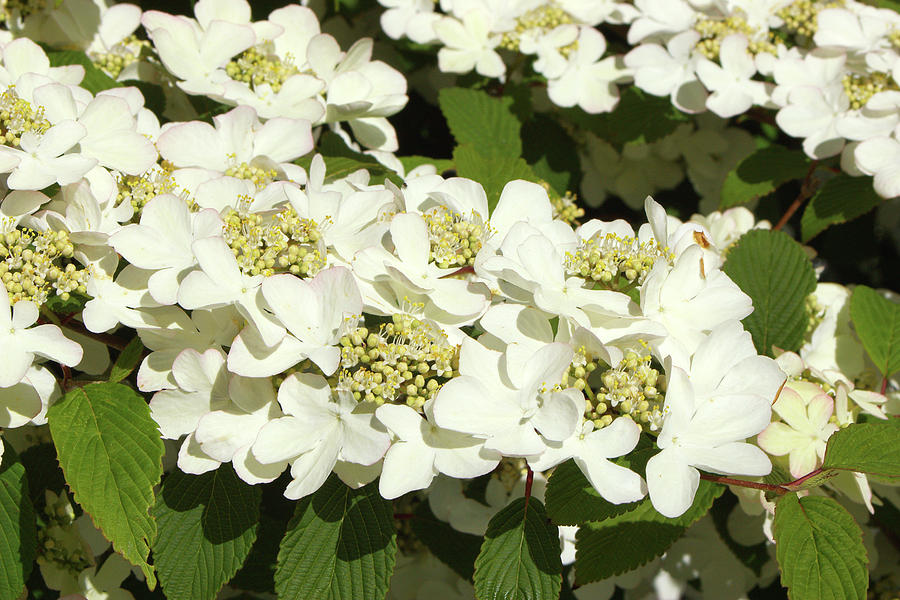
Japanese Snowball (viburnum Plicatum) Photograph by Neil Joy/science Photo Library Pixels
Japanese snowball bush 1 star 1 star 1 star 1 star 1 star ( 10) Wonderful white, lacecap-like flowers on horizontally tiered branches in May and toothed, deeply veined, dark green leaves, turning. 2 litre pot £13.49 £ 26.99 In stock (shipped within 2-3 working days) 12 litre pot | 60 - 80cm tall | grafted £99.99
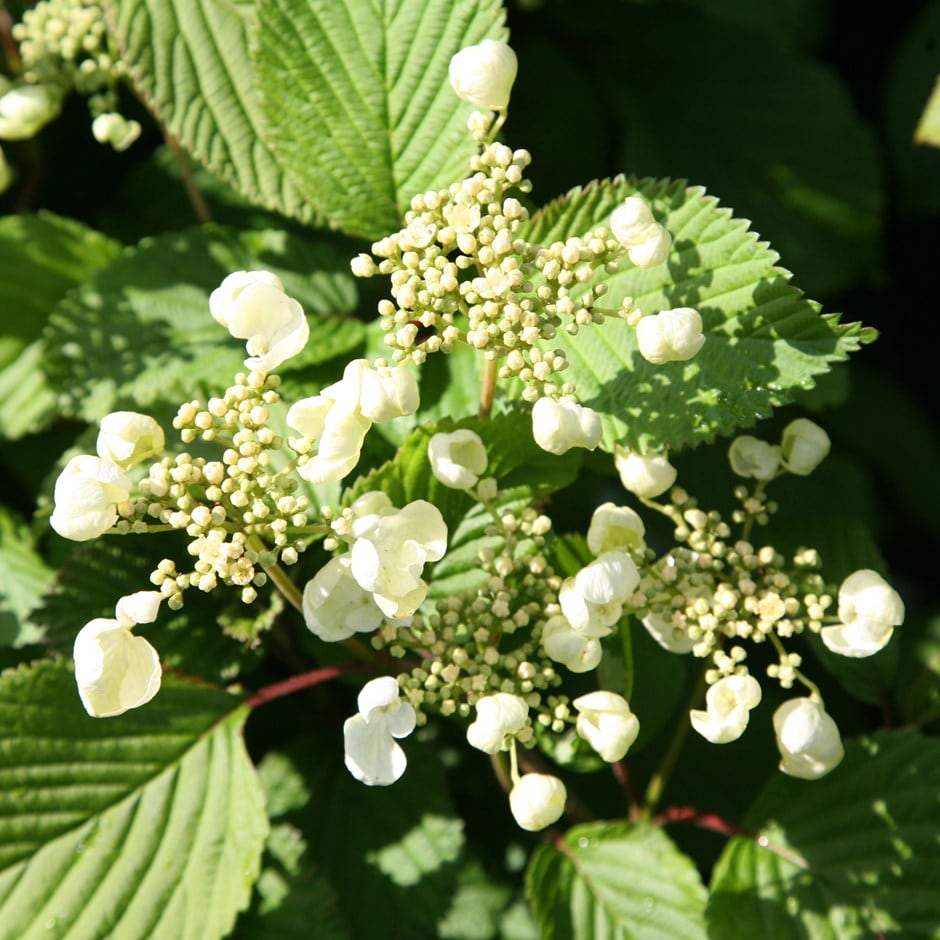
Buy Japanese snowball bush Viburnum plicatum 'f. tomentosum Mariesii'
Japanese snowball is a large deciduous shrub with showy white pom-pom flowers in the Viburnaceae (viburnum) family. It can be grown in various conditions, but prefers a moist loam. Two different forms of this plant are available in commerce. They are the Japanese snowball bush and the Doublefile Viburnum.